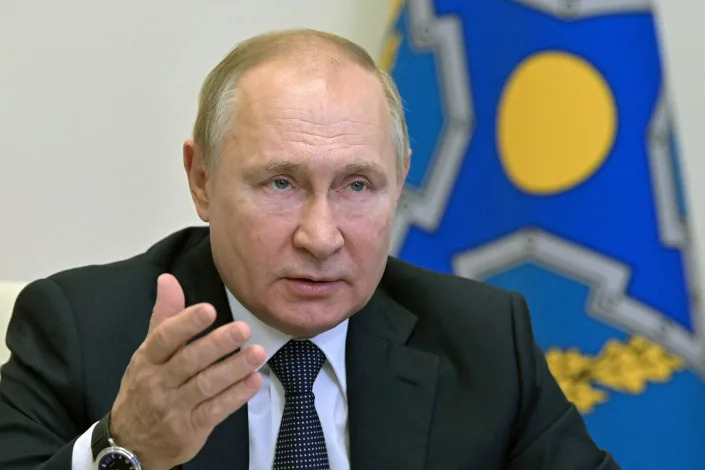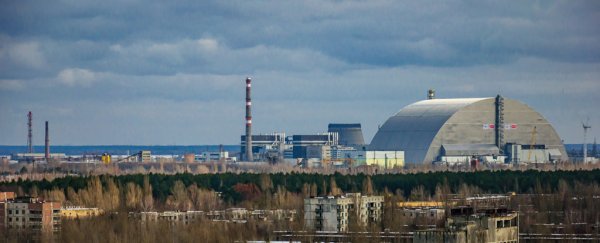
White House Vows to Avoid Future Sanctions on Russian Crude Oil
Jennifer A. Dlouhy and Ari Natter
Fri, February 25, 2022
(Bloomberg) -- The Biden administration won’t sanction Russian crude oil because that would harm U.S. consumers and not Vladimir Putin, a U.S. State Department official said Friday.
“The sanctions will not target the oil flows as we go forward,” Amos Hochstein, the State Department’s senior energy security adviser, said in an interview on Bloomberg Television.
The remarks underscore the Biden administration’s approach to sanctions that are intended to maximize pain for the Russian president while minimizing the blowback for U.S. and European consumers.
“If we target the oil and gas sector for Putin, and in this case the Russian energy establishment, then prices would spike. Perhaps he would sell only half of his product, but for double the price,” Hochstein said. “That means he would not suffer the consequences while the United States and our allies would suffer the consequences.”
Oil prices have already eased in response, Hochstein said, and the administration “can see prices go down from here.”
Oil prices topped $100 a barrel for the first time since 2014 following Russia’s invasion on Ukraine on fears that the move would lead to harsher sanctions from the West. But those gains were mostly erased after Biden’s package of initial sanctions avoided the energy sector. On Friday, West Texas Intermediate slipped $1.10 to $91.71 a barrel while Brent crude dropped $1.69 to $97.39 a barrel at 10:05 a.m. in New York.
President Joe Biden and his Democratic Party already face political risks from record inflation that has spiked the costs of consumer goods from food to fuel. Last year, Biden authorized the release of 50 million barrels of crude from the U.S. emergency stockpile, and on Thursday the he pledged to discharge more of those supplies if needed.
Hochstein called the sanctions “significantly harder and harsher” than anything previously aimed at Putin, and said that they also have more international support.
He credited the administration’s efforts to persuade natural gas exporters and Asian allies to divert gas exports to Europe. That prevented Putin from timing “the invasion with rolling blackouts or economic distress in Europe,” Hochstein said. “And there’s enough natural gas supplies to get through the winter.”
Russian gas flows to Europe through Ukraine reportedly jumped nearly 40% on Thursday, underscoring the continent's dependence on Putin's energy
Russian gas exports to Europe via Ukraine spiked nearly 38% Thursday, Bloomberg reported.
European natural-gas prices soared as much as 62% on the same day.
Germany this week pulled out of the Nord Stream 2 pipeline project with Russia.
Natural-gas exports flowing from Russia to Europe through Ukraine ramped up on Thursday, jumping by nearly 38% from a day earlier, according to data reported by Bloomberg.
Figures from Ukraine's grid operator further showed that these flows were expected to rise by about 24% on Friday compared with Thursday's levels, according to Bloomberg.
Western Europe is heavily reliant on Russian gas supplies, and the increased flow Thursday underscored that continuing dependency. Some 41% of the European Union's gas imports come from Russia, more than twice as much as Norway, the next-largest supplier, according to the most recent EU data.
The increased gas flows from Russia to Europe on Thursday came after Russian President Vladimir Putin ordered troops into Ukraine. World governments hit Russia with sanctions in response, but the US defended a decision not to include the energy sector in its measures.
The Russian state-owned energy giant Gazprom said Thursday that gas flows to Europe through Ukraine were as expected.
European gas prices soared as much as 62% on Thursday, the largest increase since 2005, according to data reported by Bloomberg.
Russia is the world's second-largest producer of natural gas, behind the US, according to the Energy Information Administration.
Earlier in the week, Germany, which relies on Russia for much of its natural gas, halted the Nord Stream 2 gas-pipeline deal with Moscow after Russian forces entered Donetsk and Luhansk, two eastern breakaway regions of Ukraine. The suspension of Nord Stream 2 had no impact on gas supplies because the pipeline wasn't operational.
Kenneth Griffin, the CEO of the hedge fund Citadel, wrote in The Wall Street Journal that Europe should reduce its reliance on Russian gas exports and the US should help the continent meet its energy needs by increasing oil production.
Biden Team to Hold Off on Sanctions Hitting Aluminum From Russia
Joe Deaux and Saleha Mohsin
Thu, February 24, 2022,
(Bloomberg) -- The Biden administration is holding off for now on sanctions against Russia that could disrupt global aluminum supplies, according to people familiar with the matter, as the market grapples with already severe shortages of the metal.
White House officials met with industry representatives in recent weeks and told them there was no U.S. intention for now of levying sanctions that would hit Russian aluminum, the people said, asking not to be named because the discussions weren’t public. Benchmark aluminum prices in London retreated from record highs after Bloomberg News reported the discussions.
Russian-supplied aluminum accounts for about 10% of total U.S. imports, highlighting the negative impact that sanctions could have for the U.S. and allies who rely on the metal for everything from iPhones to automobiles and fighter jets.
A spokeswoman for the White House National Security Council declined to comment.
Aluminum prices have surged more than 55% in the past year as plants across the globe tried to ramp up production to meet demand spurred by the reopening of economies from the pandemic. Benchmark prices hit a record on Thursday as Russia began armed conflict in Ukraine. The global market swung to a 1.9 million ton deficit last year, according to the World Bureau of Metals Statistics.
The supply situation hasn’t gotten any better as surging energy prices in Europe forced mills to shut down, while efforts by top producer China to curb its pollution led to output cuts. Almost four years ago, the U.S. levied sanctions on Russian aluminum producer United Co. Rusal International PJSC that sent prices surging and left buyers scrambling to find units.
Aluminum for delivery in three months fell 0.5% Friday to $3,378.50 a metric ton as of 11:18 a.m. on the London Metal Exchange. Prices jumped as much as 5.7% to a record $3,480 on Thursday before paring gains. Nickel -- with Russia also a major producer -- fell 2% to trade below its Wednesday close ahead of Russia’s invasion.
U.S. officials had previously disclosed concern that sanctions impacting aluminum supply could drive up the price of the metal, replicating chaos in the commodities market when the Trump administration in 2018 sanctioned Russian business tycoon Oleg Deripaska. Deripaska’s En+ Management LLC has a majority stake in Rusal, the world’s second-largest aluminum producer.
While sanctions were never ultimately implemented on Rusal due to repeated waivers from the U.S. Treasury Department, global aluminum prices shot up as much as 20% at one point, with each delay in imposing the sanctions causing more turbulence.
Russia is also a major exporter of oil, natural gas, wheat, crop nutrients and other metals.














